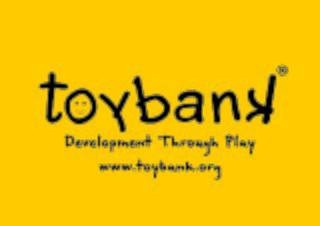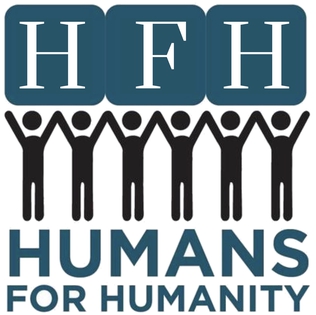
A non-governmental organization (NGO) is an organization that generally is formed independent from government. They are typically nonprofit entities, and many of them are active in humanitarianism or the social sciences; they can also include clubs and associations that provide services to their members and others. NGOs can also be lobby groups for corporations, such as the World Economic Forum. NGOs are distinguished from international and intergovernmental organizations (IOs) in that the latter are more directly involved with sovereign states and their governments.

The International Commission of Jurists (ICJ) is an international human rights non-governmental organization. It is a standing group of 60 eminent jurists—including senior judges, attorneys and academics—who work to develop national and international human rights standards through the law. Commissioners are known for their experience, knowledge and fundamental commitment to human rights. The composition of the Commission aims to reflect the geographical diversity of the world and its many legal systems.

Islamic Relief Worldwide is a faith-inspired humanitarian and development agency which is working to support and empower the world's most vulnerable people.

Catholic Relief Services (CRS) is the international humanitarian agency of the Catholic community in the United States. Founded in 1943 by the Bishops of the United States, the agency provides assistance to 130 million people in more than 110 countries and territories in Africa, Asia, Latin America, the Middle East and Eastern Europe.
A mine clearance organization, or demining organization, is an organization involved in the removal of landmines and unexploded ordnance (UXO) for military, humanitarian, or commercial reasons. Demining includes mine clearance, as well as surveying, mapping and marking of hazardous areas.

Child Rights and You (CRY) is an Indian non-governmental organization (NGO) that works towards ensuring children's rights.

Deepalaya is an Indian non-governmental organization that aids the development of the urban and rural poor in India, with a focus on children. Founded in 1979, it is headquartered in Delhi. Deepalaya primarily serves the urban slums of Delhi, but also works on rural development in the states of Haryana and Uttarakhand. Deepalaya's focus is on sparking sustainable development from within a community. From 2009–2010, 23.18% of Deepalaya's total income came from donations and 52.37% from government grants. HSBC India also supports Deepalaya through donations and voluntary works. Deepalaya experienced US$236,741.42 in deficit for this period. Deepalaya was awarded Sat Paul Mittal Award of appreciation in 2018.

Martha Chen is an American academic, scholar and social worker, who is presently a lecturer in public policy at the Harvard Kennedy School and senior advisor of the global research-policy-action network WIEGO and a member of the Advisory Board of the United Nations University World Institute for Development Economics Research (UNU-WIDER). Martha is a development practitioner and scholar who has worked with the working poor in India, South Asia, and around the world. Her areas of specialization are employment, poverty alleviation, informal economy, and gender. She lived in Bangladesh working with BRAC, one of the world's largest non-governmental organizations, and in India, as field representative of Oxfam America for India and Bangladesh for 15 years.

Founded in 1999, Alliance India is a non-governmental organisation operating in partnership with civil society, government and communities to support sustained responses to HIV in India that protect rights and improve health. Complementing the Indian national programme, we build capacity, provide technical support and advocate to strengthen the delivery of effective, innovative, community-based HIV programmes to vulnerable populations: sex workers, men who have sex with men (MSM), transgender people, hijras, people who inject drugs (PWID), and people living with HIV.

Jeroo Billimoria is an Indian social entrepreneur and the founder of several international NGOs. Her work has been featured in several books. Her most recent initiatives include Aflatoun, Childline India Foundation and Child Helpline International. Her most recent initiative is Child and Youth Finance International (CYFI), which Jeroo founded in 2011.
Butterflies organisation established by Rita Panicker, is a registered voluntary organization that has been operating in Delhi since 1989. The organization focuses on assisting the vulnerable, particularly those who are living on streets and working on the streets. Employing a rights-based and participatory methodology, Butterflies aims to provide education and life skills to these children, ultimately empowering themto achieve self-reliance.
Gutta Muniratnam was an Indian social worker, a member of the National Planning Commission of India and the founder of Rashtriya Seva Samithi (RASS), a non governmental organization engaged in the social welfare activities in over 2500 socio-economically backward villages in the Rayalaseema region, spread across the present day states of Andhra Pradesh and Telangana. He was honored by the Government of India, in 2012, with the fourth highest Indian civilian award of Padma Shri.

Rita Panicker Pinto is the founder and director of Butterflies India.

The All India Disaster Mitigation Institute (AIDMI) is a NGO registered in India. Located at Ahmedabad, Gujarat, India, it works on disaster risk reduction, climate change adaptation and disaster mitigation. It is a community-based ; action planning, action research and advocacy organization, working towards bridging the gap between policy, practice and research related to disaster mitigation. AIDMI have been working on six pillars: (i) Awareness generation, (ii) Capacity building, (iii) Policy advocacy, (iv) Direct implementation, (v) Research and publications, and (vi) Networking.

Toybank, an initiative under The Opentree Foundation is an organization in India that promotes 'Development Through Play' for all children. It was founded in August 2004 by Shweta Chari. It has its headquarters in Mumbai with a presence in Pune, Bangalore, Hyderabad, Delhi, Goa and Bhutan.

The head office of UNHCR's mission in India is located in Delhi, with a field office in Chennai. The current Chief of Mission is Areti Sianni. UNHCR won the Indira Gandhi Prize for Peace, Disarmament and Development in 2015. UNHCR was awarded the Mother Teresa Award for Social Justice by the Harmony Foundation, Mumbai.
Bal Raksha Bharat, commonly known as Save the Children India, is a non-profit organization working to improve the lives of marginalized children in India since 2008. Headquartered in Gurugram, and registered as Bal Raksha Bharat in India, the organization is a member of the international Save the Children Alliance.

Rahul Verma is an Indian social activist and founder of the Uday Foundation, a non profit organization named after his son, who was born with multiple congenital defects. His work includes distribution of free food to poor patients and their caregivers outside hospitals and related to health and dignity of destitute in India.

Tage Rita is an agricultural engineer from Ziro Valley and is India's first kiwi wine brewer. In 2018, she was honored with the Women Transforming India Awards, organized by the United Nations and NITI Aayog.

Humans For Humanity (HFH) is a non-governmental organization, founded by renowned social worker Anurag Chauhan, headquartered in Dehradun, India. It is working to bring awareness about menstrual health, hygiene among women across India. It is providing health, hygiene and comfort to women, especially in poverty-stricken and rural areas in India. The organization empowers women by educating women and young girls on menstruation and menstrual hygiene, and by conducting workshops to produce low-cost sanitary pads. The WASH project started by Humans For Humanity has reached over 3 million women in over 6 states in India in the last 6 years, as of October 2020.
















